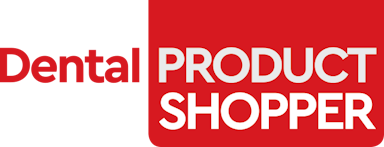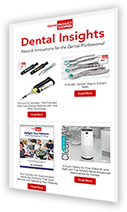Cloud Backup Services: What Dental Practices Need to Know
From patient charts with digital images to patient billing information, the average dental practice processes large amounts of data each day. Data backup  and recovery are critical for any business, and with numerous cloud backup solutions available on the market, dental practices may be wondering which service is the most convenient, cost-effective, and secure for HIPAA compliance.
and recovery are critical for any business, and with numerous cloud backup solutions available on the market, dental practices may be wondering which service is the most convenient, cost-effective, and secure for HIPAA compliance.
At TechCentral by Henry Schein One, we’ve observed that many practices agree on the importance of having a cloud backup solution in addition to a localized, in-office backup. However, they might not know which services are right for their practice needs or understand how both of these backups should be working in tandem. Too often, we have seen dental practices assume their backups are running and uploading somewhere to the cloud, only to find out the hard way that the backup wasn’t being performed correctly.
In this article, we’ll detail the nuances of cloud backup solutions, the differences between self-managed and service-managed clouds, and the solutions that can help mitigate your practice’s risks while maintaining your bottom line.
What Is Cloud Backup?
Also referred to as online backup, a cloud backup occurs when your practice data is copied, encrypted, and remotely stored on a cloud-based server in a data center. In the event your practice data needs to be restored — as a result of a power outage, hardware failure or theft, natural disaster, or even human error — having a cloud backup enables your dental practice to access, retrieve, and restore digital records.
“Free” Cloud Backup vs. Paid Service
Technology evolves with staggering speed. About a decade ago, cloud technology was less prevalent among consumers, including dental practices. The Google Cloud launched in 2008,1 and Apple iCloud followed in 2011.2 Businesses caught on quickly and by 2014, 75% of businesses were using a type of cloud-computing software, according to statistics cited by Dentrix Ascend, part of the Henry Schein One family.3
While services like Google Drive and Microsoft OneDrive may be good for personal use, they’re not the best options for business use. Typically, a free cloud storage account comes with 2GB to 5GB of space. File size limitations and bandwidth restrictions can limit dental practice’s ability to swiftly upload and download files. If a free service goes down, your practice won’t be able to access important files. Moreover, many free backup cloud solutions are hacking targets and don’t meet HIPAA encryption guidelines,4 putting your patient and practice information at a high risk.
Even if you have a paid version of these popular services, it’s not always easy to get through to support. Once you do, it’s unlikely that the representative will have specialized dental industry knowledge to help troubleshoot any complications with your dental practice management software or digital imaging software. At this point, you’re at the mercy of a tech conglomerate and hoping they can help retrieve your practice data.
Self-Managed vs. Managed-Service Clouds
After selecting a backup cloud service, you’ll need to move or deploy all your files and data to the cloud. When doing this, you can opt for either a self-managed or service-managed setup. If you choose to do this yourself, you have full control over the application. However, more control equates to more responsibility and greater risk.
TechCentral has observed that 1 out of 4 dental practices that have chosen a self-managed backup did not have a current backup.
With a manual process, there is no automatic “versioning,” which is a process that involves saving new copies of your files when changes are made. Without versioning, any changes your dental practice makes to pertinent files won’t be saved. If you accidentally delete the original file, there is no past version to access.
Another risk associated with self-managed backups is that you assume the responsibility of keeping up with software updates, meaning you have to adjust to any updates in file structure. This includes using the correct file naming protocols so that your practice data continues to be backed up in the correct locations and isn’t lost.
Providers like TechCentral assume the risk and responsibility of securely managing the backup of sensitive e-PHI (electronic patient health information) and saving your files in multiple, highly secure locations with multiple recovery points. Furthermore, TechCentral ensures backup protocols follow HIPAA guidelines and requirements, which include entering Business Associate Agreements.
Ultimately, a managed-service cloud backup provides busy dental practices invaluable peace of mind.
Pro-tip for slow Internet speeds: Even if a dental practice has slow Internet speed, TechCentral can seat the customer in the cloud at no additional cost using a password-protected hard drive with Advanced Encryption Standard (AES) 256-bit encryption. TechCentral mails out the device, and the office works with a TechCentral support tech to put all of their data on the hard drive. The hard drive is mailed back to TechCentral’s office, where we use our super-fast internet to upload the data. We try to get each customer seated within a 14-day turnaround, meaning the entirety of their data has been uploaded, and now the only data that will go up to the cloud are file changes that occur over a course of a typical business day, also known as “the daily churn.”
Generally, TechCentral remotely runs two backups every day for our customers, which are strategically timed so as not to slow down the practice network during the workday.
Why Practices Should Use a Hybrid Backup Solution
You’ve heard the saying, “don’t put all your eggs in one basket.” The more diverse your backup strategy is, the less likely you are to lose data forever. This is why a hybrid backup solution, which utilizes both local hardware and the cloud, is so valuable for dental practices.
Of course, some dentists immediately recognize the value while others don’t. We’ve had experiences working with two types of dentists:
1. The dentist who is cost-driven and apprehensive about either buying or leasing a local backup appliance for their practice.
Many dental practices still utilize onsite rotating drives which they later back up to the cloud manually. This method carries multiple risks of complacency, including not routinely rotating the drives, ignoring error messages about the drives, or forgetting to physically secure the cartridges at the end of the day, which could lead to data loss in the event of flood, fire, or theft. There’s also the risk of crypto-ransomware infecting multiple cartridges, which would render the backup device useless. An onsite rotating drive also burdens your staff, as you will have to take time training new employees on how to properly back up files.
Some dentists don’t realize that if they rely only on a cloud backup, recovery of their files may be contingent on their Internet speed. They might wind up buying an appliance anyway in the event they need to restore from the cloud.
2. Then there is the dentist who already had a data recovery incident, and now cost-savings aren’t a primary motivator. If they’ve lost data before, they understand the value of their backup.
These dentists readily see the value in TechCentral’s Hybrid Backup Service, which stores at least three copies of your practice data, including a local copy, a cloud copy, and a remotely stored copy of the cloud copy. Additionally, TechCentral stores nearly three dozen versions of each file. Saving these versions can be helpful for compliance with HIPAA regulations, which require dental practices to retain some business documents, such as authorization for disclosure of PHI, for a minimum of 6 years.5 By storing redundant copies of your original and backup files, you can protect your practice in the event of an audit. Combined with the security benefits, this is why hybrid-style backup is becoming the industry standard for dental organizations.
TechCentral’s Omnicore Has Your Back(up)
In today’s fast-paced digital landscape, crypto-ransomware continues to be a rising threat,6 while software is continuously updated. Dental practices are left with a question: why take on this burden and potentially fall behind in a way that puts your practice at risk? Why not outsource your practice IT needs, weighing the risks on one hand and the affordable cost structure of hardware-as-a-service on the other?
TechCentral’s Omnicore “network-in-a-box” solution represents reliability and predictability, both in function and budgetary monthly cost. In addition to our Hybrid Backup Service, Omnicore contains network-attached storage (NAS), a business-grade wireless access point, firewall, and most recently, remote access. We’ve designed Omnicore to be aligned with the needs of the modern dental practice, so you don’t have to worry if you’re using the right IT solutions. They’ve all been licensed and packaged up for you in a low-profile rack that rolls right into your office.
TechCentral has your back and your backup! Let us serve you in a way that provides greater peace of mind, so you can focus on providing excellent patient care.
Contact TechCentral today for a free on-site technology assessment.
Sources:
1. https://acloudguru.com/blog/engineering/history-google-cloud-platform
2. https://www.apple.com/newsroom/2011/06/06Apple-Introduces-iCloud/
3. https://www.dentrixascend.com/assets/pdf/dpr0115_Infographic.pdf
4. https://compliancy-group.com/hipaa-encryption/
5. https://www.hipaajournal.com/hipaa-retention-requirements/
6. https://www.infosecurity-magazine.com/news/white-house-asked-to-increase/
About David Broom
David Broom is Senior Director of Product and Business Development. David has a master’s degree in Information Technology (IT) from the University of Texas in Dallas and has more than 35 years of experience from many global companies such as Hitachi Vantara, Methode Electronics, and Keane, Inc. In his current role, he is responsible for all aspects of the product management and field service teams at TechCentral by Henry Schein One, which identifies the ideal advanced technologies to meet the unique needs of the dental market and ensure that dental offices are using the right IT to be more efficient and effective.
This article is paid for by TechCentral, a division of Henry Schein One, LLC. Certain components of the products or services described above are provided by third parties. Henry Schein One LLC and its affiliates are not responsible for, and expressly disclaim, all liability for damages of any kind arising out of the use of those third-party products or services.




